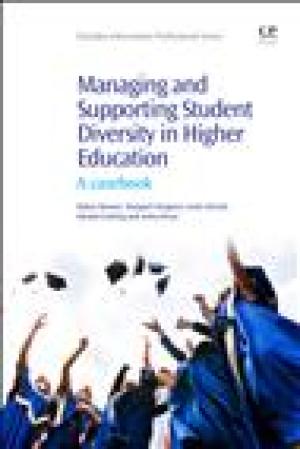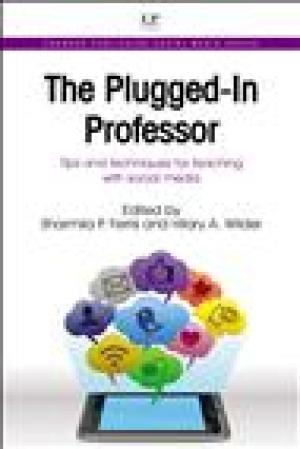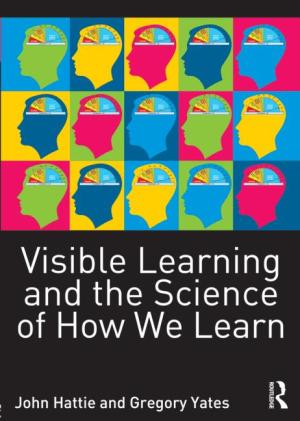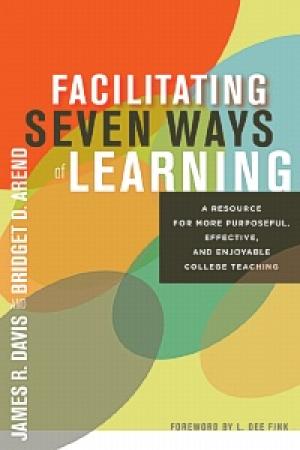Resources

Click Here for Book Review Abstract: Nearly three-quarters of college students cheat during their undergraduate careers, a startling number attributed variously to the laziness of today’s students, their lack of a moral compass, or the demands of a hypercompetitive society. For James Lang, cultural or sociological explanations like these are red herrings. His provocative new research indicates that students often cheat because their learning environments give them ample incentives to try—and that strategies which make cheating less worthwhile also improve student learning. Cheating Lessons is a practical guide to tackling academic dishonesty at its roots. Drawing on an array of findings from cognitive theory, Lang analyzes the specific, often hidden features of course design and daily classroom practice that create opportunities for cheating. Courses that set the stakes of performance very high, that rely on single assessment mechanisms like multiple-choice tests, that have arbitrary grading criteria: these are the kinds of conditions that breed cheating. Lang seeks to empower teachers to create more effective learning environments that foster intrinsic motivation, promote mastery, and instill the sense of self-efficacy that students need for deep learning. Although cheating is a persistent problem, the prognosis is not dire. The good news is that strategies which reduce cheating also improve student performance overall. Instructors who learn to curb academic dishonesty will have done more than solve a course management problem—they will have become better educators all around. (From the Publisher)

Journal Issue.

Click Here for Book Review Abstract: Government initiatives in many countries emphasise social inclusion in higher education, resulting in a more diverse student population. This presents opportunities and challenges for academic and professional staff in managing and supporting these students. Managing and Supporting Student Diversity in Higher Education focuses on how students succeed amidst a culture of widening participation. The book is divided into seven chapters. The first introduces current literature and policies to present an international perspective on widening participation in higher education. The following five chapters present students’ stories on topics including getting into higher education, the international experience, coping with education later in life, and identity. Stories are followed by implications for management and support, and discussion topics for practitioners. The book concludes by looking at how students succeed in higher education and the implications for managing and supporting student diversity. (From the Publisher)

Click Here for Book Review Abstract: Provides a cutting-edge resource for academics and practitioners in effective ways of reaching today’s students through the use of their favorite tool, social media Outlines a range of strategies taking advantage of the unique learning styles and habits of net generation learners Exposes students to ways in which these technologies can be used in their professional and personal lives Reinforces students' growth as productive, reflective, and involved twenty-first century citizens New technologies are transforming the way students work. The Plugged in Professor provides a timely and exceptional resource for using social media and other new technologies to help college students meet both general and discipline-specific objectives. The title covers techniques built around well-known social networking technologies, as well as other emerging technologies such as mobile phone and tablet apps. With a practical focus and reader-friendly format, this book shows educators how to apply techniques in each technology, and includes clear student learning objectives, step-by-step directions, observations and advice, and supplemental readings and resources. Twenty-five chapters by leading contributors cover key aspects of new technologies in education, in four parts: Writing, research and information fluency; Communication and collaboration; Critical thinking and creativity; and Integrative learning. Readership: Educators in higher education, academics, teachers, and all those who wish to develop their techniques to more effectively reach the Net Generation will find this book useful. (From the Publisher)

Click Here for Book Review Abstract: On publication in 2009 John Hattie’s Visible Learning presented the biggest ever collection of research into what actually work in schools to improve children’s learning. Not what was fashionable, not what political and educational vested interests wanted to champion, but what actually produced the best results in terms of improving learning and educational outcomes. It became an instant bestseller and was described by the TES as revealing education’s ‘holy grail’. Now in this latest book, John Hattie has joined forces with cognitive psychologist Greg Yates to build on the original data and legacy of the Visible Learning project, showing how it’s underlying ideas and the cutting edge of cognitive science can form a powerful and complimentary framework for shaping learning in the classroom and beyond. Visible Learning and the Science of How We Learn explains the major principles and strategies of learning, outlining why it can be so hard sometimes, and yet easy on other occasions. Aimed at teachers and students, it is written in an accessible and engaging style and can be read cover to cover, or used on a chapter-by-chapter basis for essay writing or staff development. The bookis structured in three parts – ‘learning within classrooms’, ‘learning foundations’, which explains the cognitive building blocks of knowledge acquisition and ‘know thyself’ which explores, confidence and self-knowledge. It also features extensive interactive appendices containing study guide questions to encourage critical thinking, annotated bibliographic entries with recommendations for further reading, links to relevant websites and YouTube clips. Throughout, the authors draw upon the latest international research into how the learning process works and how to maximise impact on students, covering such topics as: teacher personality; expertise and teacher-student relationships; how knowledge is stored and the impact of cognitive load; thinking fast and thinking slow; the psychology of self-control; the role of conversation at school and at home; invisible gorillas and the IKEA effect; digital native theory; myths and fallacies about how people learn. This fascinating book is aimed at any student, teacher or parent requiring an up-to-date commentary on how research into human learning processes can inform our teaching and what goes on in our schools. It takes a broad sweep through findings stemming mainly from social and cognitive psychology and presents them in a useable format for students and teachers at all levels, from preschool to tertiary training institutes. (From the Publisher)

Click Here for Book Review Abstract: In colleges and universities across the United States, students, faculty, and staff are forging new paths to sustainability. From private liberal arts colleges to major research institutions to community colleges, sustainability concerns are being integrated into curricula, policies, and programs. New divisions, degree programs, and courses of study cross traditional disciplinary boundaries; Sustainability Councils become part of campus governance; and new sustainability issues link to historic social and educational missions. In this book, leaders from twenty-four colleges and universities offer their stories of institutional and personal transformation. These stories document both the power of leadership—whether by college presidents, faculty, staff, or student activists—and the potential for institutions to redefine themselves. Chapters recount, among other things, how inclusive campus governance helped mobilize students at the University of South Carolina; how a course at the Menominee Nation’s tribal college linked sustainability and traditional knowledge; how the president of Furman University convinced a conservative campus community to make sustainability a strategic priority; how students at San Diego State University built sustainability into future governance while financing a LEED platinum-certified student center; and how sustainability transformed pedagogy in a lecture class at Penn State. As this book makes clear, there are many paths to sustainability in higher education. These stories offer a snapshot of what has been accomplished and a roadmap to what is possible. (From the Publisher)

Click Here for Book Review Abstract: This book examines the undergraduate teaching experiences and collegial relationships of university faculty who hold appointments in social science, humanities, or natural science and engineering, and who have received undergraduate teaching or service-to-diversity nominations and awards. Documenting and interpreting faculty members’ social identities and pedagogical practices, Faculty Identities and the Challenge of Diversity explores how professors address the diverse racial, ethnic, gender, and sexual identities of their students. By carefully considering how this unique group of faculty makes sense of their instruction and classrooms, this book provides practical advice that will prove beneficial to both experienced and new teachers looking to improve their practice in a changing educational landscape. (From the Publisher)

Click Here for Book Review Abstract: For teachers in higher education who haven’t been able to catch up with developments in teaching and learning, James Davis and Bridget Arend offer an introduction that focuses on seven coherent and proven evidence-based strategies. The underlying rationale is to provide a framework to match teaching goals to distinct ways of learning, based on well-established theories of learning. The authors present approaches that readers can readily and safely experiment with to achieve desired learning outcomes, and build confidence in changing their methods of teaching. Research on learning clearly demonstrates that learning is not one thing, but many. The learning associated with developing a skill is different from the learning associated with understanding and remembering information, which in turn is different from thinking critically and creatively, solving problems, making decisions, or change paradigms in the light of evidence. Differing outcomes involve different ways of learning and teaching strategies. The authors provide the reader with a conceptual approach for selecting appropriate teaching strategies for different types of content, and for achieving specific learning objectives. They demonstrate through examples how a focused and purposeful selection of activities improves student performance, and in the process makes for a more effective and satisfying teaching experience. The core of the book presents a chapter on each of the seven ways of learning. Each chapter offers a full description of the process, illustrates its application with examples from different academic fields and types of institutions, clearly describes the teacher’s facilitation role, and covers assessment and online use. The seven ways of learning are: Behavioral Learning; Cognitive Learning; Learning through Inquiry; Learning with Mental Models; Learning through Groups and Teams; Learning through Virtual Realities; and Experiential Learning. Along the way, the authors provide the reader with a basis for evaluating other approaches to teaching and other learning methodologies so that she or he can confidently go beyond the “seven ways” to adapt or adopt further strategies. This is the ideal companion for teachers who are beginning to explore new ways of teaching, and want to do some serious independent thinking about learning. The book can also be used to prepare graduate students for teaching, and will be welcomed by centers for teaching and learning to help continuing faculty re-examine a particular aspect of their teaching. (From the Publisher)

Click Here for Book Review Abstract: How can I apply learning and social justice theory to become a better facilitator? Should I prepare differently for workshops around specific identities? How do I effectively respond when things aren’t going as planned? This book is intended for the increasing number of faculty and student affairs administrators – at whatever their level of experience -- who are being are asked to become social justice educators to prepare students to live successfully within, and contribute to, an equitable multicultural society. It will enable facilitators to create programs that go beyond superficial discussion of the issues to fundamentally address the structural and cultural causes of inequity, and provide students with the knowledge and skills to work for a more just society. Beyond theory, design, techniques and advice on practice, the book concludes with a section on supporting student social action. The authors illuminate the art and complexity of facilitation, describe multiple approaches, and discuss the necessary and ongoing reflection process. What sets this book apart is how the authors illustrate these practices through personal narratives of challenges encountered, and by admitting to their struggles and mistakes. They emphasize the need to prepare by taking into account such considerations as the developmental readiness of the participants, and the particular issues and historical context of the campus, before designing and facilitating a social justice training or selecting specific exercises. They pay particular attention to the struggle to teach the goals of social justice education in a language that can be embraced by the general public, and to connect its structural and contextual analyses to real issues inside and outside the classroom. The book is informed by the recognition that “the magic is almost never in the exercise or the handout but, instead, is in the facilitation”; and by the authors’ commitment to help educators identify and analyze dehumanizing processes on their campuses and in society at large, reflect on their own socialization, and engage in proactive strategies to dismantle oppression. (From the Publisher)

Click Here for Book Review Abstract: The new generation of scholars differs in many ways from its predecessor of just a few decades ago. Academia once consisted largely of men in traditional single-earner families. Today, men and women fill the doctoral student ranks in nearly equal numbers and most will experience both the benefits and challenges of living in dual-income households. This generation also has new expectations and values, notably the desire for flexibility and balance between careers and other life goals. However, changes to the structure and culture of academia have not kept pace with young scholars’ desires for work-family balance. Do Babies Matter? is the first comprehensive examination of the relationship between family formation and the academic careers of men and women. The book begins with graduate students and postdoctoral fellows, moves on to early and mid-career years, and ends with retirement. Individual chapters examine graduate school, how recent PhD recipients get into the academic game, the tenure process, and life after tenure. The authors explore the family sacrifices women often have to make to get ahead in academia and consider how gender and family interact to affect promotion to full professor, salaries, and retirement. Concrete strategies are suggested for transforming the university into a family-friendly environment at every career stage. The book draws on over a decade of research using unprecedented data resources, including the Survey of Doctorate Recipients, a nationally representative panel survey of PhDs in America, and multiple surveys of faculty and graduate students at the ten-campus University of California system. (From the Publisher)